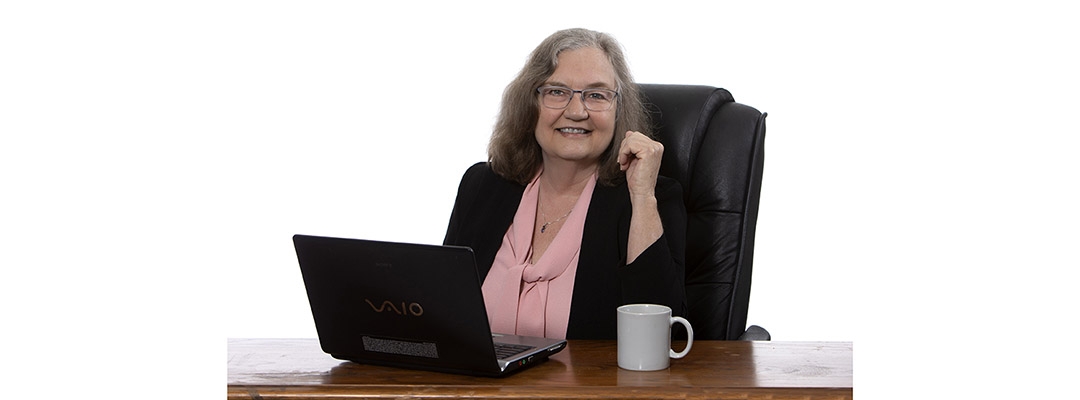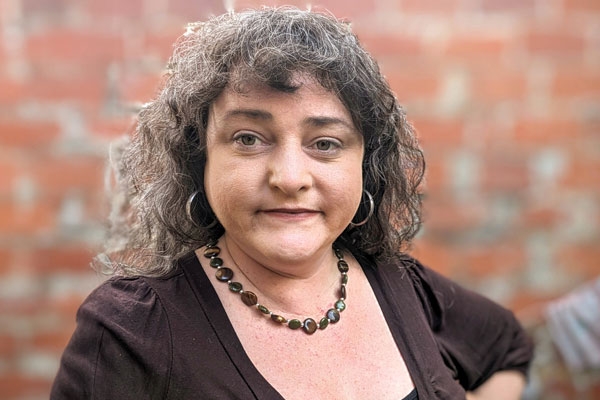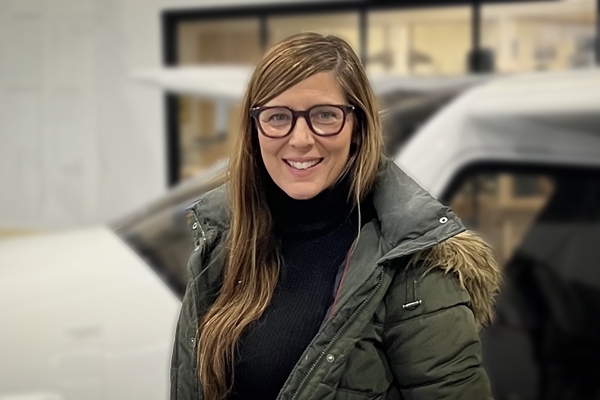Like Marie Coreil, you might already have a long, satisfying career in one industry when you suddenly find yourself wanting to pursue something new.
For 23 years, Marie had taught medical behavioral science at the University of South Florida’s School of Public Health. After all those years doing technical writing for academic grant proposals, conference papers, books and journal articles, as well as providing commentary and editorial feedback on hundreds of graduate student papers, she found herself wanting to pursue more creative writing in her next career move. She also wanted to volunteer at nonprofit organizations with humanitarian, social justice and community development missions—issues close to her heart. And how would Marie bridge the two goals? Her enjoyment of the editorial process would become the link between the two passions.
In 2010, Marie took early retirement from academia and began to plan her next steps. This led to a move to Portland, Ore., in 2012, to experience a different part of the country and to be closer to her younger son. There, she began writing and publishing personal essays and satires and created an author website, Tropic of Candor. She also started volunteering as a tour guide and a receptionist with Leach Botanical Garden, where her new career path started to take shape.
Why did you decide to hone your editing skills when you left academia for other pursuits, such as creative writing?
Creative writing is not a new skill set or interest, just a new direction for something I'd done throughout my academic career. Neither is editing. But, few writers can support themselves through writing alone, so many combine editing and writing in their freelance work. My long-term goal is to continue to pursue the dual work of creative writing and professional editing.
After two years of volunteering with Leach Botanical Garden, I began the Professional Sequence in Editing. I had noticed that the botanical garden’s newsletter lacked style consistency and included many common errors.
I approached my supervisor, explained my new career goal to become a professional editor and asked if I might copyedit the newsletter. At the time, no one was performing this editorial task. My offer was accepted. I gave myself the title Editorial Assistant and worked closely with the board secretary, who supervised newsletter production.

Why did you choose our professional editing sequence?
My academic work had involved a significant amount of editing; I did my own editing for everything I submitted to academic journals and book publishers. I loved the editing process and recognized this inclination in myself early on. Once I retired from academia, I decided I could use my editorial skills to assist with various publications, such as the Leach newsletter. And I knew that in order to be qualified for a formal editorial position with an organization, I would need a credential or the professional experience to market myself as a professional editor.
I read online sources about training, and the Professional Sequence in Editing was mentioned often and seemed to carry prestige in the field. I found someone through the Northwest Independent Editors Guild who had completed the program, and consulted with her about her experience. She felt that the training was definitely worth the investment.
That is what initially led me to enroll in the Professional Sequence in Editing. Once I began the program, I appreciated even more how the field requires advanced expertise and specialized knowledge. There was so much to learn!
What was your experience like in the online course environment?
My faculty position at the University of South Florida included substantial online teaching, so I was already familiar with a web-based course environment. I thought UC Berkeley Extension’s online course environment was very good, the editing content comprehensive and the exercises geared to develop skills and not just be busywork.
What impressed me most about the program was the careful attention to covering the full range of professional editing. I am now well prepared to take on almost any editorial task. The courses were rigorous, and the instructors required us to work hard, but all the work had purpose. Developing style sheets was one task I have found particularly useful in my current work. So far, I’ve developed house style guides—something organizations often don’t realize are helpful tools—for three of the nonprofits I’ve worked for!
Was there any one instructor who really made an impact on your career?
All of the instructors were outstanding: always available to help students, answer questions, explain the material in different ways and cheer us on. However, one instructor who did stand out was Anne Hill. She seemed to invest time, attention and caring above and beyond the already high bar set by the other instructors.
Can you tell me more about your career path and how you got to where you are now?
After completing the professional sequence in July 2017, I applied for editing internships with the magazines Oregon Humanities and Tin House, but I also had wondered if my age might work against me in getting an internship. So to find an immediate practice situation to hone my skills, I approached the marketing director of the Architectural Heritage Center in Portland and pitched volunteering as her editorial assistant. She gladly accepted the help and assigned me to work on their annual auction catalog.
Two other volunteer roles came from former students at the School of Public Health. They were working with the nonprofits The Pamlico Rose Institute for Sustainable Communities and Caring for Haitian Orphans With AIDS. (I still do pro bono work for these two organizations.)
Two years into being a member of a writing group based in Vancouver, Wash., I was given an opportunity to get paid work. The group’s leader, Linda Stirling—who is an experienced editor and writer, and who has worked in the publishing industry for decades—had recently launched The Publishing Circle, a hybrid publisher that provides one-stop services to authors, including editing, book design, production and marketing. I pitched my services to her, and in December 2017, she hired me as a manuscript editor to assist with manuscript evaluation and copyediting.
Also last year, my son who had lived in Seattle left to move back to Florida. I no longer had family in the Pacific Northwest, so a few weeks ago I moved back to Louisiana, near the small town where I grew up. But my change in location doesn’t really affect the jobs I can take. As with all of the coursework in the Professional Sequence in Editing, all of my current editing work is done remotely, so I'm able to continue the same editing positions I held in Portland.
You do freelance editing work under your own business. Can you tell me more about how that figures into your goals?
I gave my freelance business the name Coreil Editorial Services to encompass all the work I do related to editing. In addition to the work described above, I provide copyediting for academic writing, developmental editing at early stages of book planning and background research for writers. One of my goals is to develop a literary prize and launch a magazine or anthology for memoir writing. The Professional Sequence in Editing has provided me with a recognized credential and the necessary skills to pursue this goal.
In the meantime, I want to continue to hone my editorial skills and learn more about the publishing business. That's one of the reasons I chose The Publishing Circle as a client, so I could learn the ropes of the rapidly evolving world of publishing. On the creative writing side, I want to continue publishing my personal essays and satires, both individually and as book-length collections. I recently completed my first collection, Rose City Audition: Portland Life Beyond the Hype, and will soon begin querying publishers.



